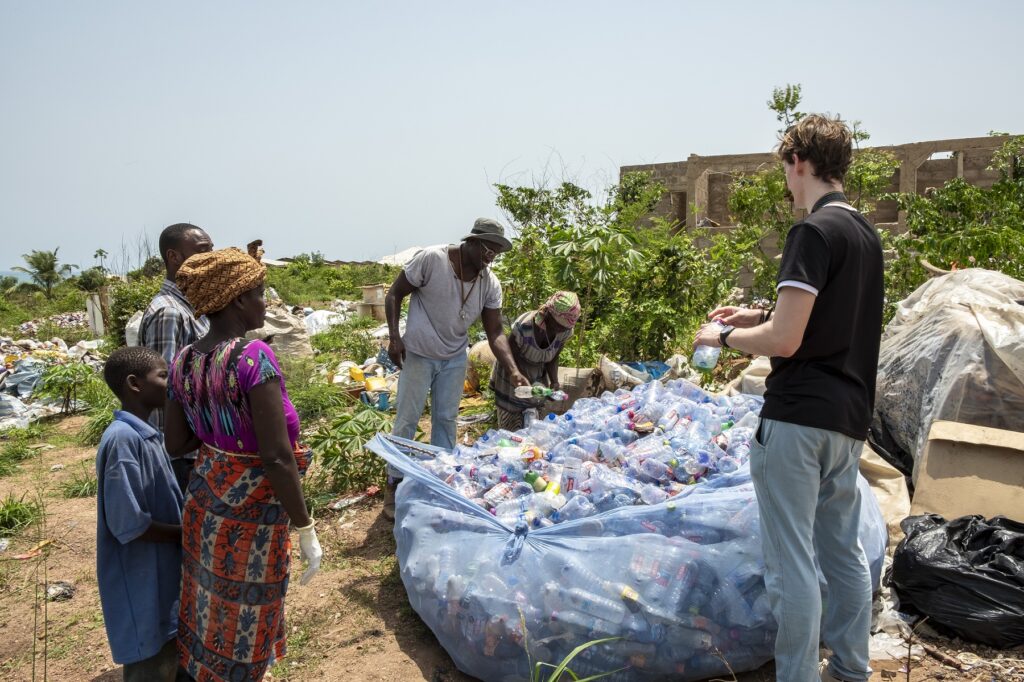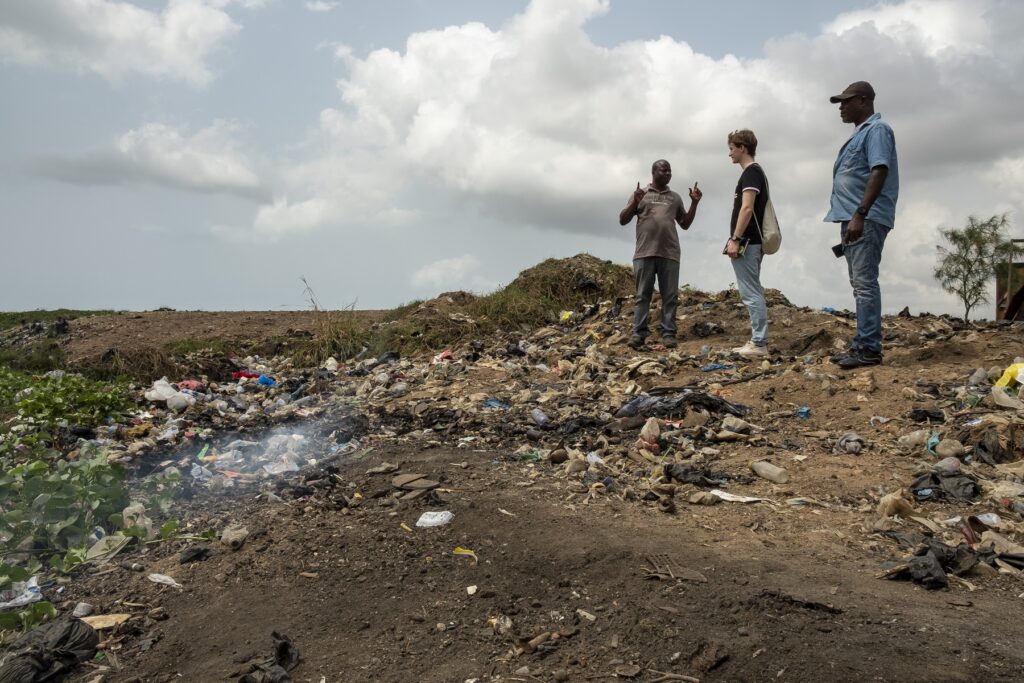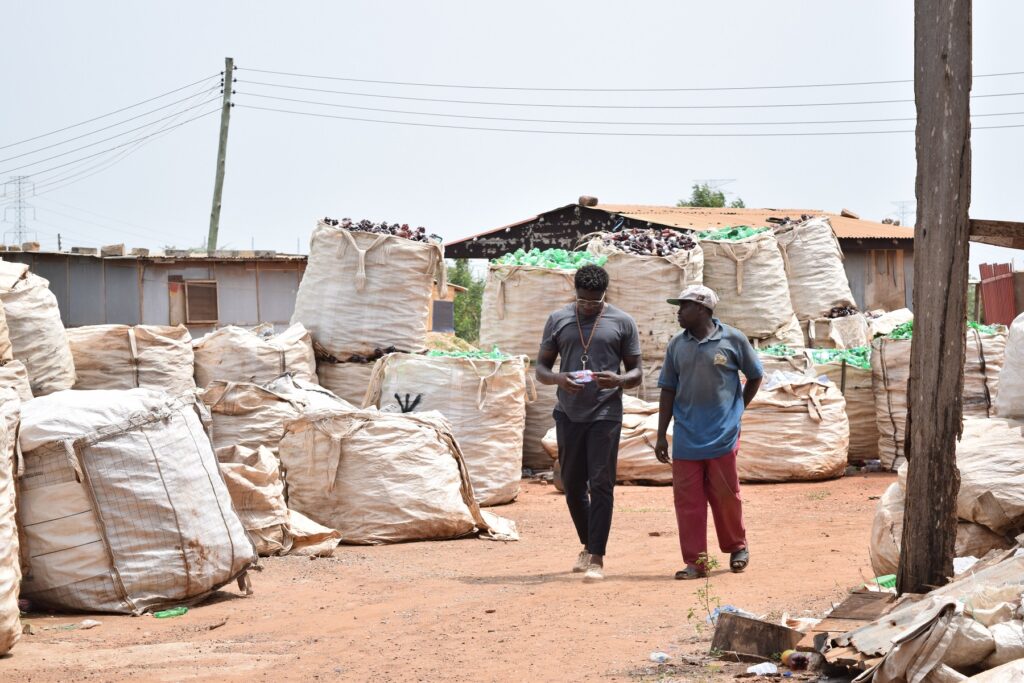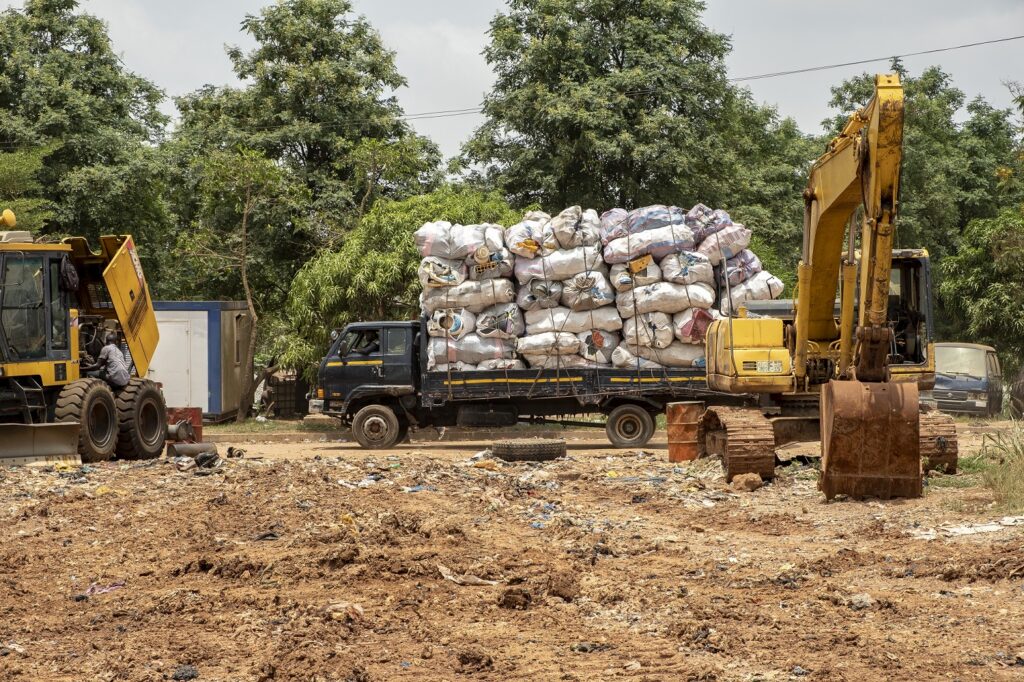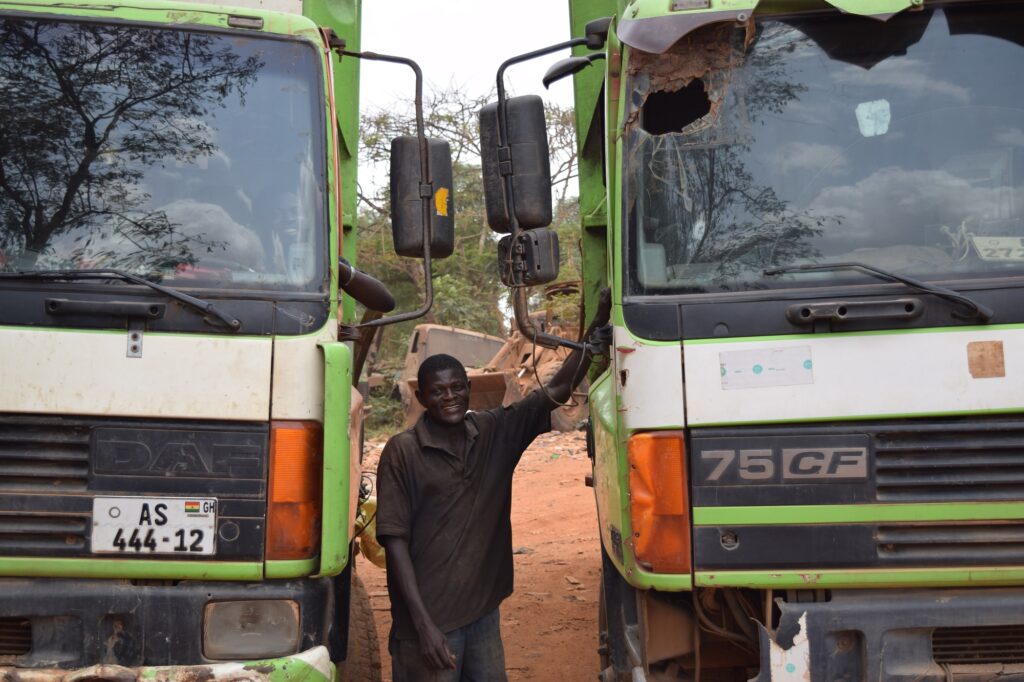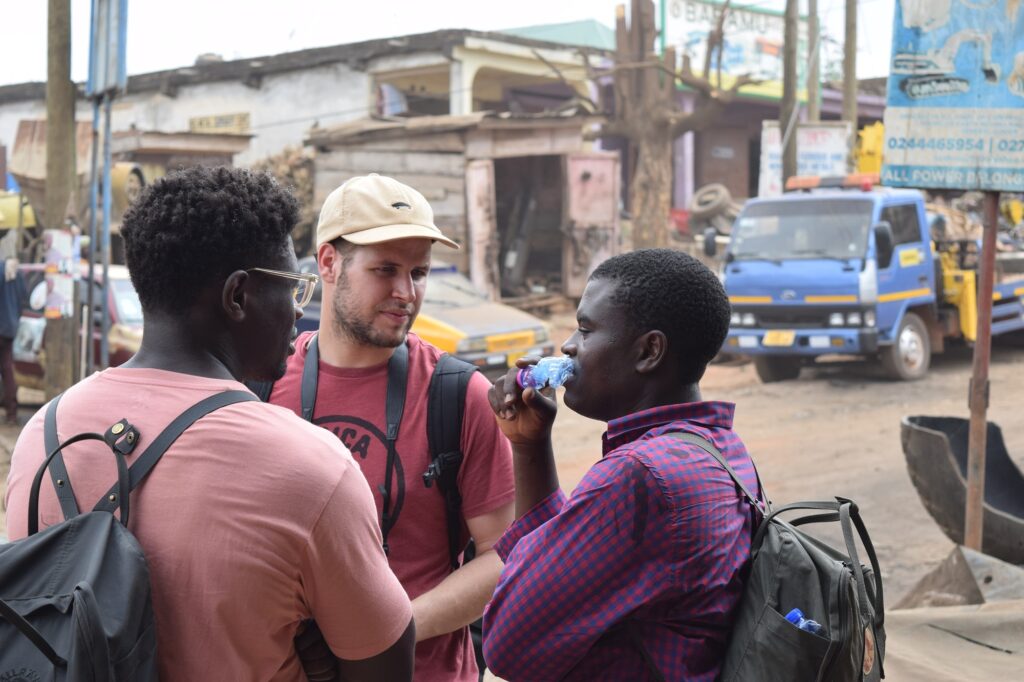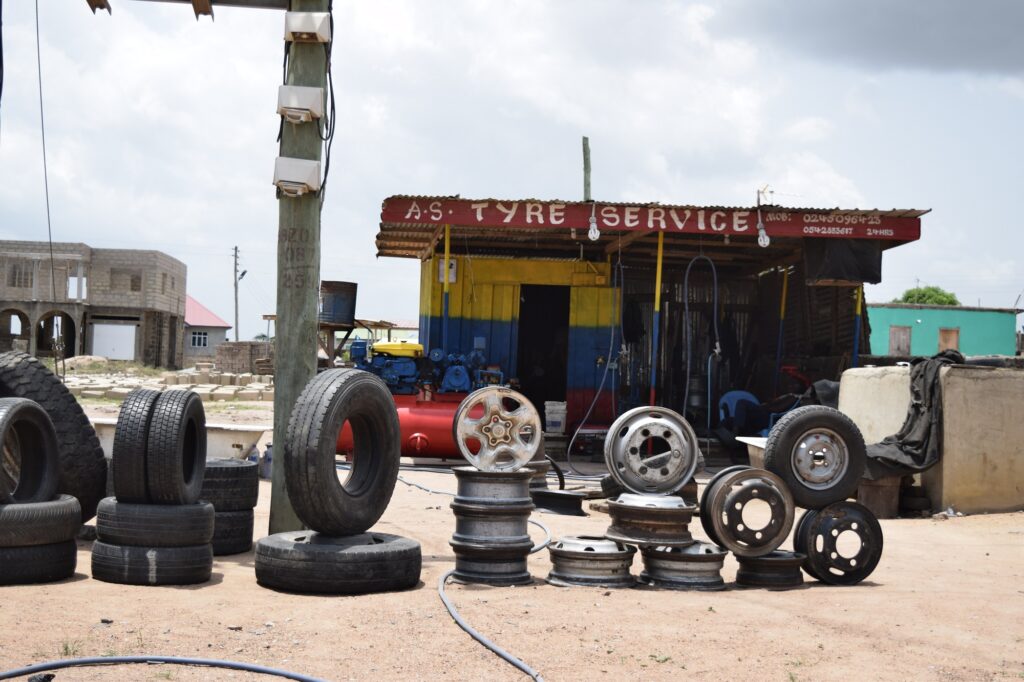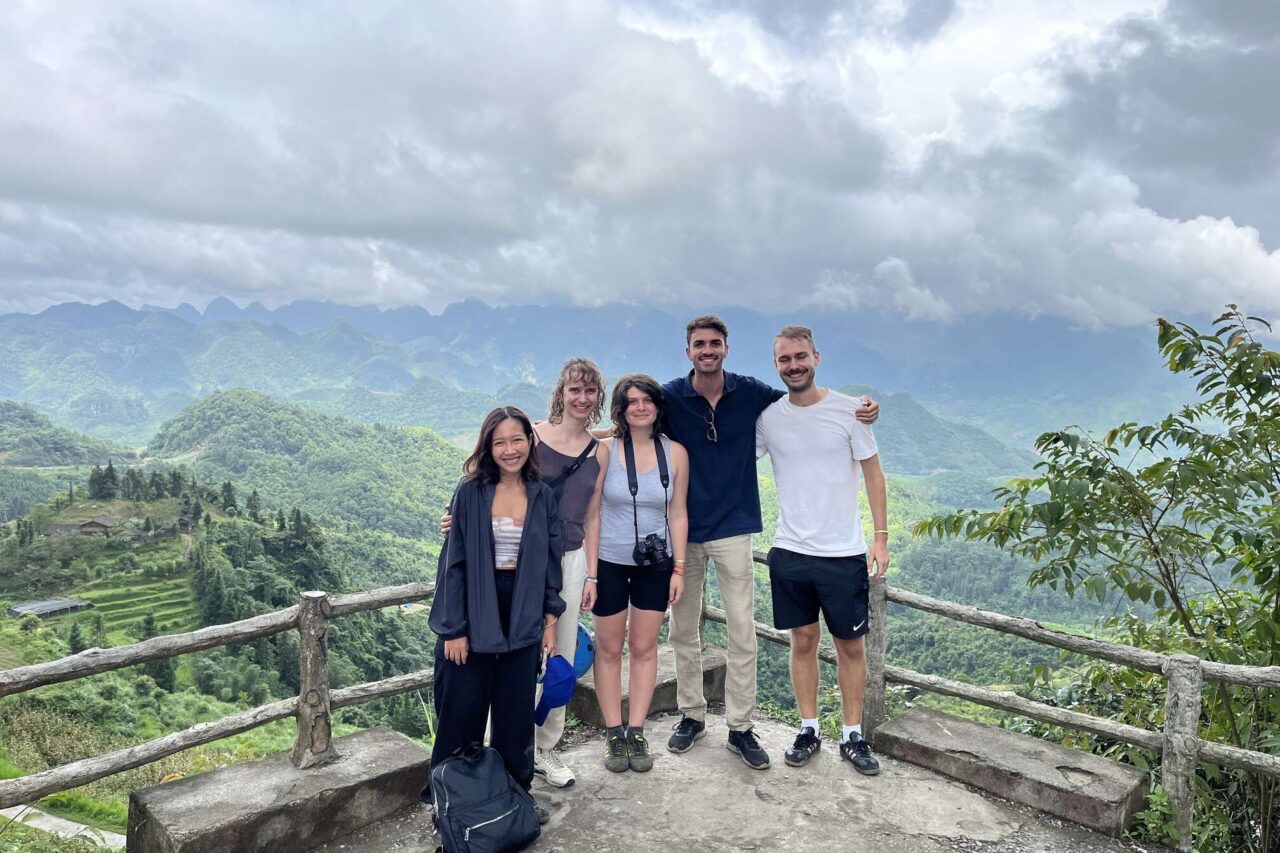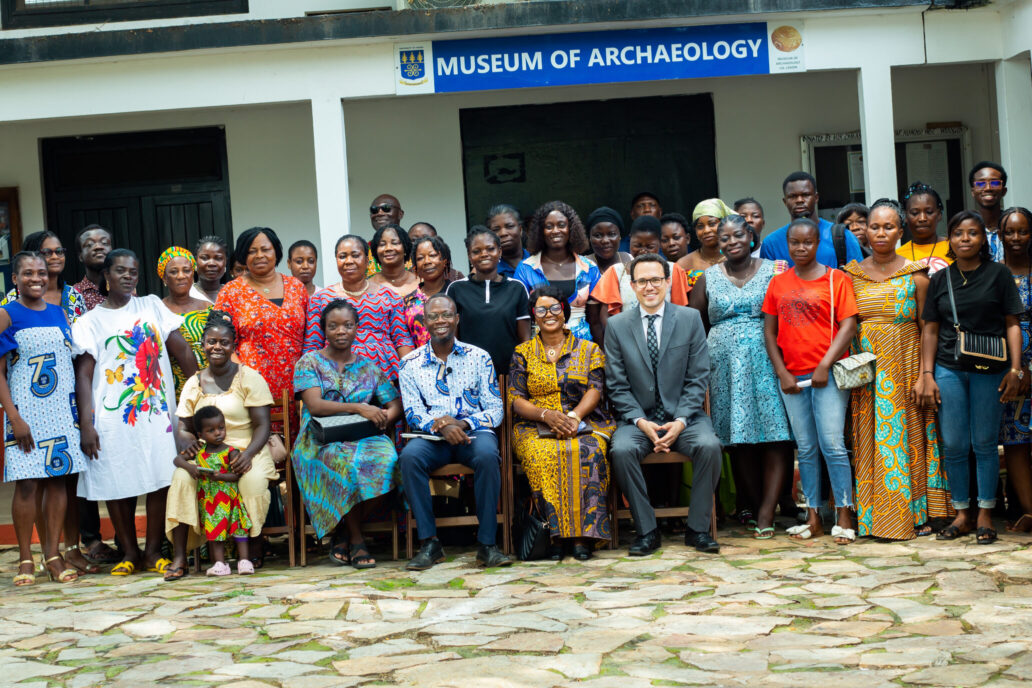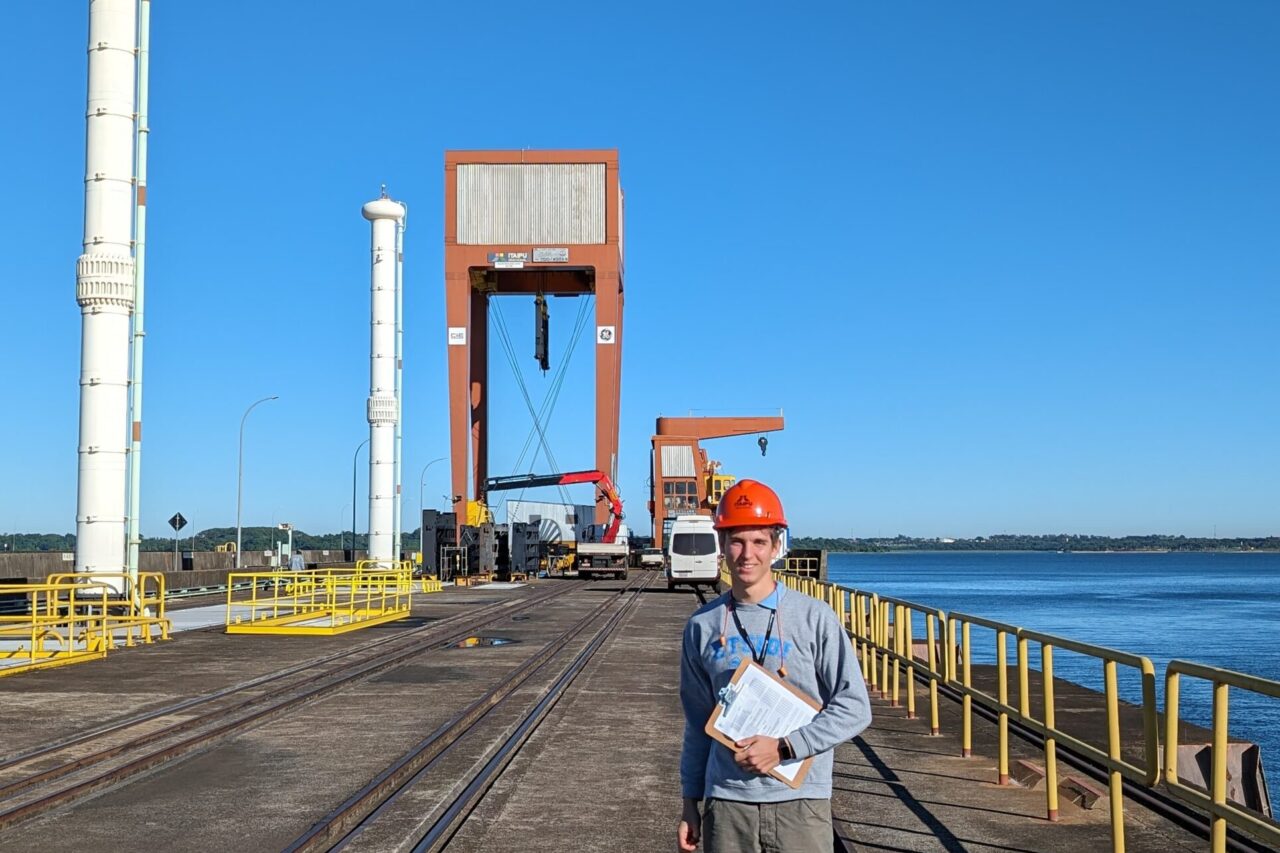…and you wouldn’t be wrong. PET can be recycled to new plastic containers or polyester clothing. PET bottles that enter the European market are collected and recycled, giving new lives to what used to be single-use packaging.
Installing Breaks on Ghana’s PET Race Car
by Arthur Collins, Master's Student in Mechanical Engineering, 6 August 2020

A tandem project: Arthur Collins, mechanical engineering student at ETH Zurich, and Donat Mehr, industrial design student at ZHDK (photo credit: Eva Lindner)
However, you will be appalled to hear that in some places, this potential is not being taken advantage of at all! In the context of my Bachelor’s Thesis in mechanical engineering with ETH Zurich’s Design and Technology Lab I paired up with Donat Mehr, an industrial design student from Zurich University of the Arts (ZHDK), and travelled to a country where some people spend their days collecting recyclable plastic off the street, but look past PET bottles as if they didn’t exist. How is this possible, considering that among collectable plastics, PET has the highest recycling value?
The sad truth is that large multinational beverage corporations infuse PET bottles into countries that don’t have the technology and infrastructure to recycle them. That’s like giving someone a fast car without telling them that the breaks don’t work!
Accra, Ghana, March 2019
Enter rePATRN, a startup that buys a high-value plastic in a country where so-called pickers make a living by collecting plastic off the street. Seems like a quick win, right? In reality, after years of active advertisement of their offer, the only regular supply of PET bottles comes from a neighbouring dump.
Donat and I flew to Ghana as a student tandem. Our goal: to figure out how to make collecting PET bottles more attractive. We soon realized that the main barrier was the fact that bottles are full of air! The high volume of plastic bottles make transport uneconomical. If a person collects bottles and fills a truck 50 km away from rePATRN’s facility, the price received upon delivery of the bottles is equal to the price payed for transport. Zero dollars is not a very good daily wage. Following these observations, we began sketching out a system that would enable actors within the recycling chain to easily compress bottles at a small scale before transporting them to a buyer.
Our trip was marked by long days and the unsavory smell of waste below a blazing sun. We skipped lunches, got our hands dirty (literally) and talked to as many people as we could. Dumpsite owners, waste pickers in the city, local engineers and members of recycling organizations... Little by little, we learned the details and particularities of the waste processing chain in Ghana.

In many parts of Africa, metals and plastics such as PP are recycled, but not PET plastic. (photo credit: Arthur Collins/ETH Zurich)
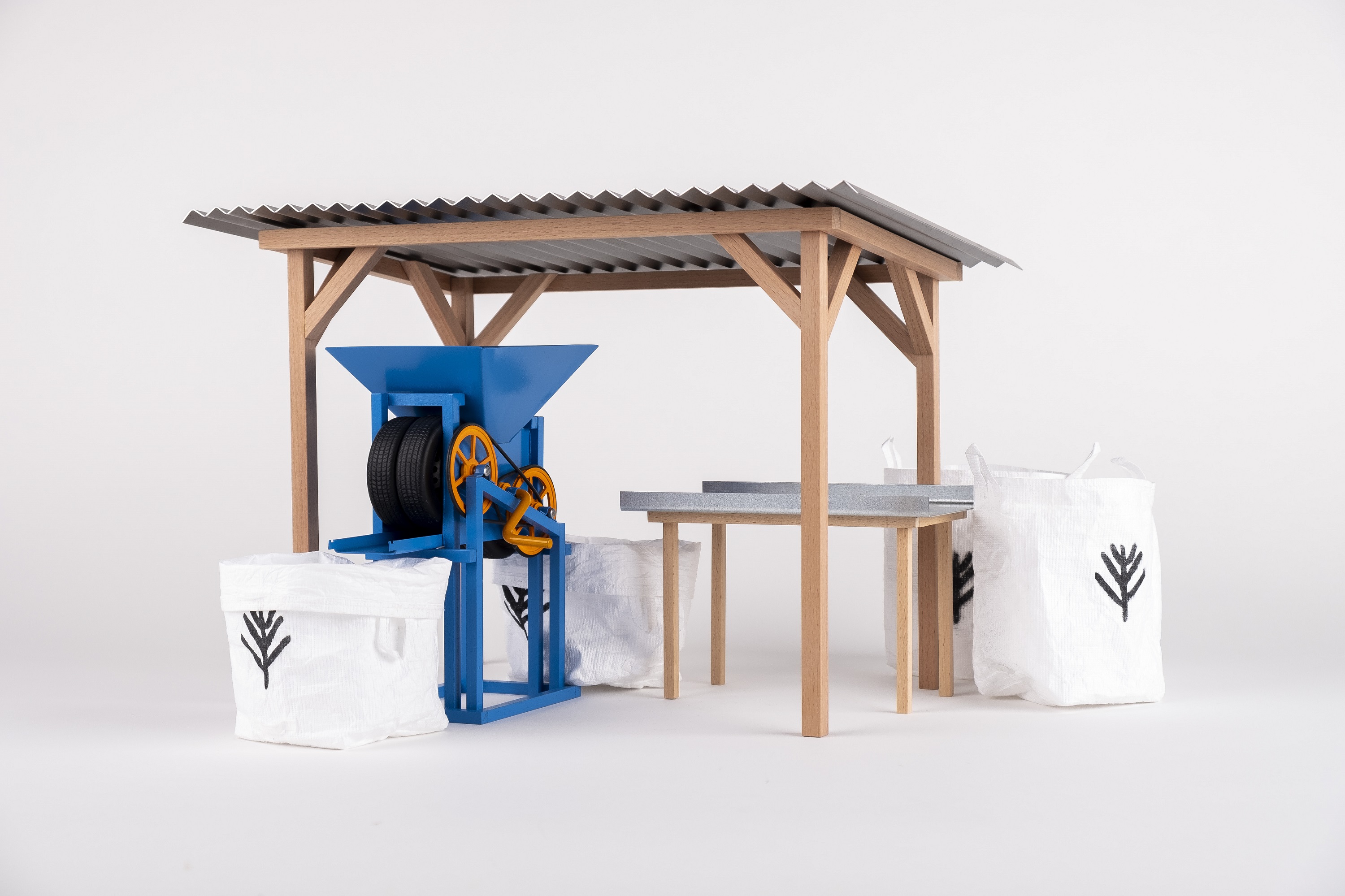
This is a PressPoint. Here, bottles are bought off pickers. Caps are removed and sold separately (PP plastic). The bottles are crushed and stored for transport to a PET buyer like rePATRN. (photo credit: Donat Mehr)
Today, a compact mechanical compressor has the potential to make transportation of PET profitable in Ghana. The device we designed is simple and made of readily available parts, with widely used techniques. However, this is only part of the innovation.
Everything revolves around bottle collection hubs throughout the city, which we dubbed “PressPoints”. Like the press itself, the economic model must fit into the environment and be accepted in a culture that is entirely different to ours.
What’s next? We are quite aware that a week in Ghana doesn’t make us experts. Our PET press and the associated economic concept will go through several iterations in Accra. A first locally produced prototype of our press is currently being tested. rePATRN’s founder, Jeffrey Provencal, is confident that in a few years’ time, PressPoints will be scattered through the city, enabling Ghanaians to recycle PET, as it is meant to be.
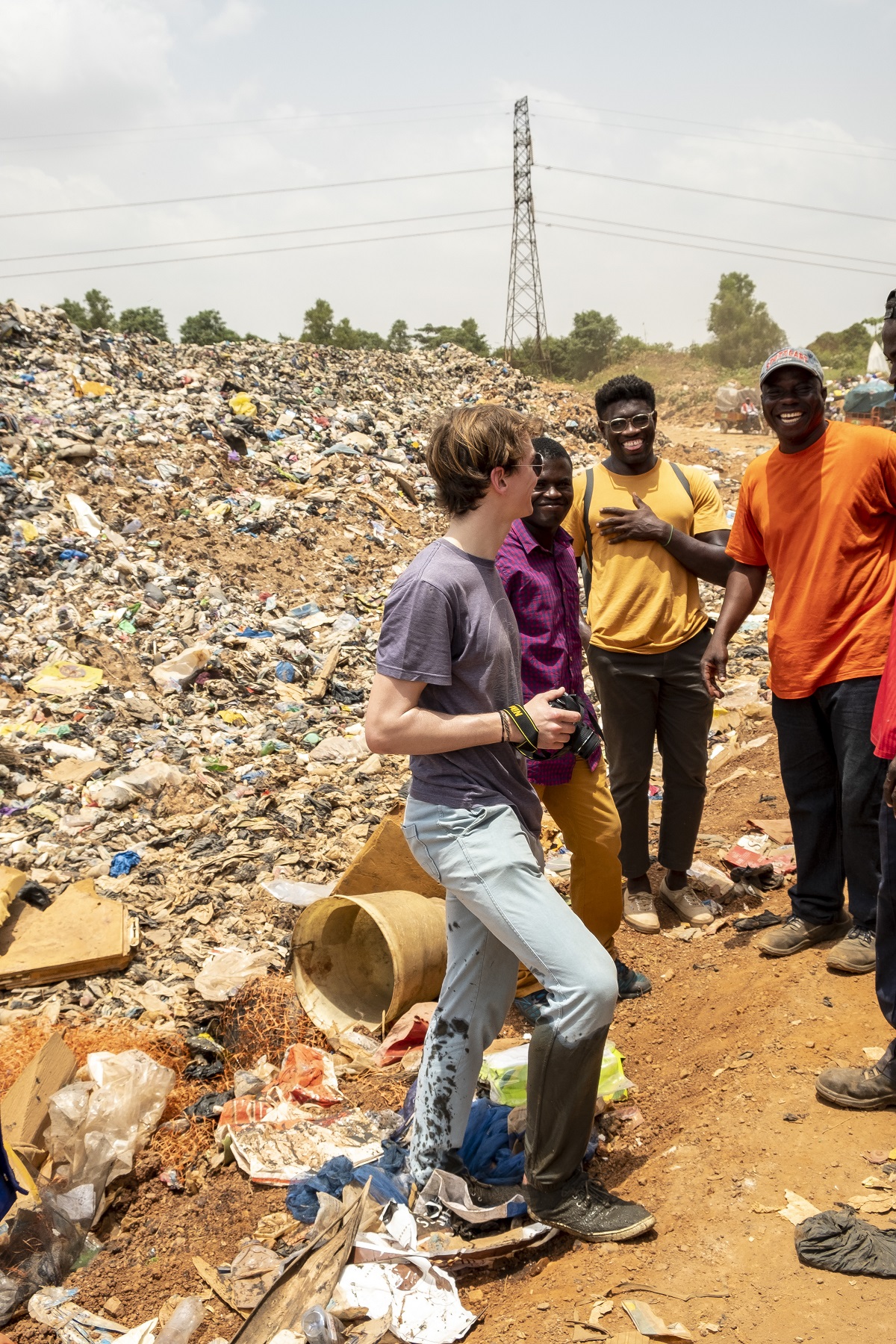
Arthur takes a step off the dirt road and regrets it immediately. (photo credit: Donat Mehr)
Videos
More information about the Design and Technology Lab
The Design and Technology Lab is a cross-university education and research platform founded by the Industrial Design Programme at Zurich University of the Arts (ZHdK) and the Product Development Group of the Federal Institute of Technology in Zurich (ETH).
Interdisciplinary tandem teams consisting of two students, one from each discipline, devote themselves to an industry or research project for three months to jointly develop a meaningful product concept and a prototype.
Please check our website for more information on the lab and how to apply as an industrial partner: http://www.designtechlab.ch
You can also contact us directly: Jonas Conrad, conradj@ethz.ch
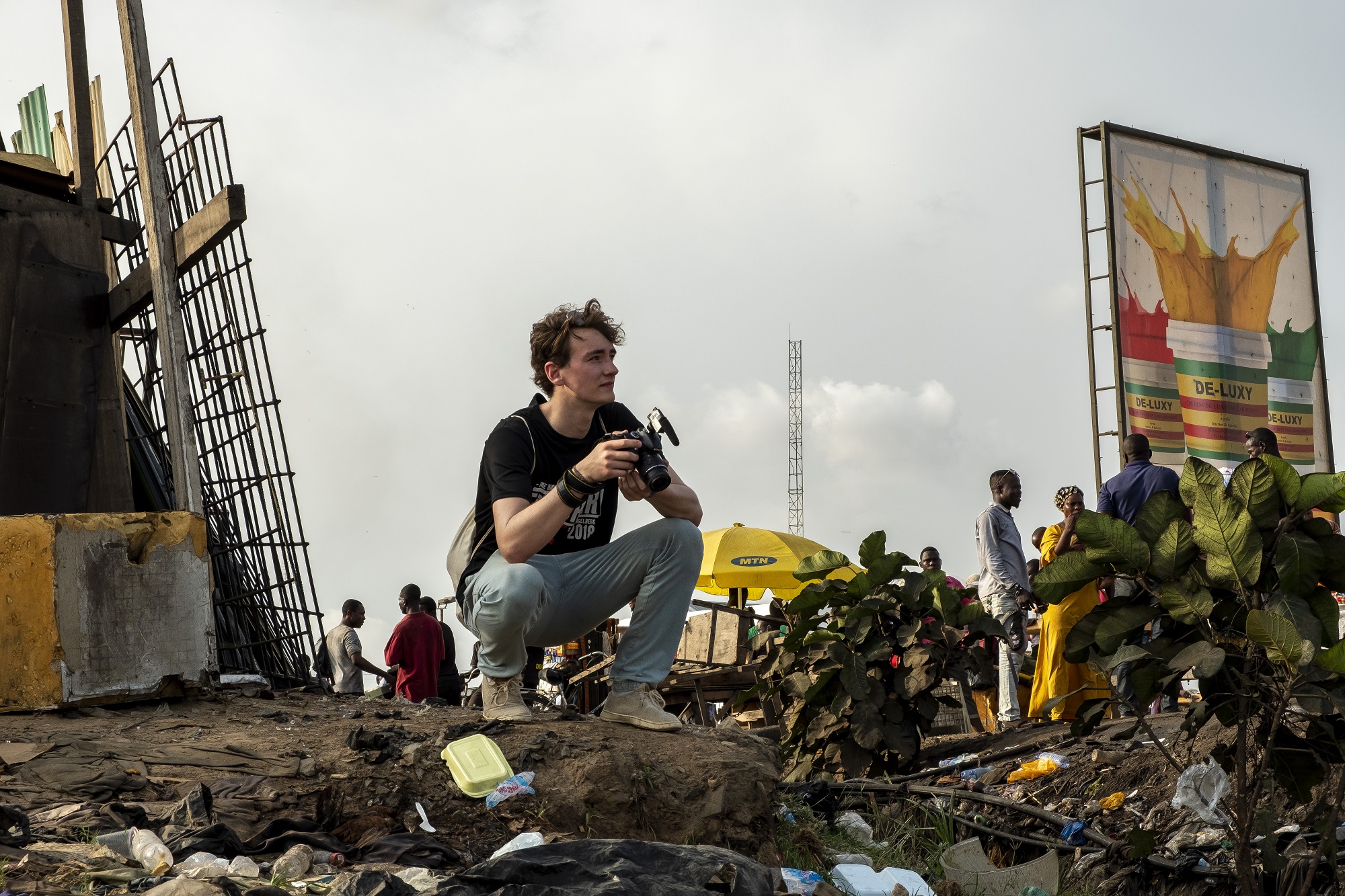
Photo credit: Donat Mehr
About the author
Arthur Collins is a mechanical engineering student in his Master’s at ETH Zurich. A very hands-on person, Arthur takes advantage of every occasion he finds to tackle real-world problems and yield tangible results. Through various group projects at ETH Zurich and ZHDK, he has developed a passion for working in interdisciplinary settings, in particular where engineering meets design. In his free time, Arthur is an avid film maker and musician.



